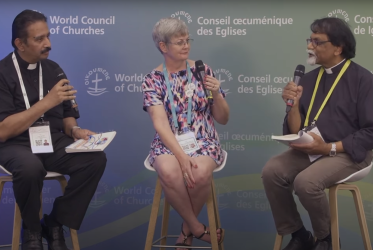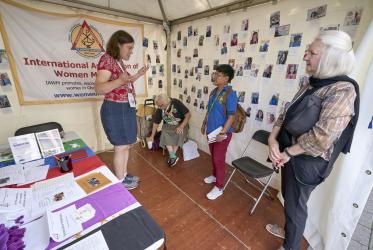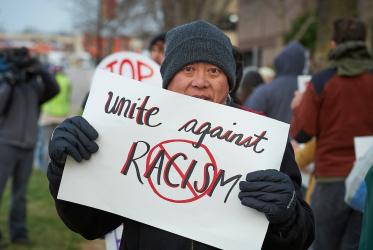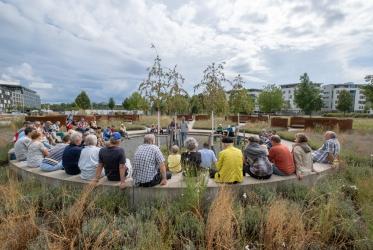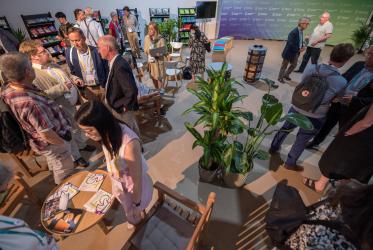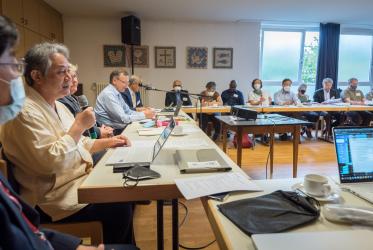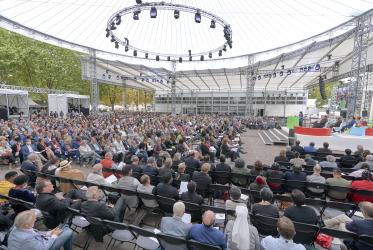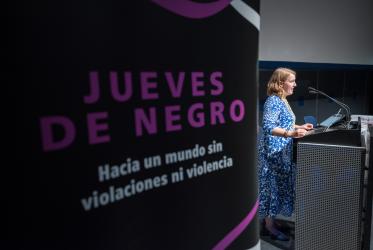Displaying 81 - 100 of 685
Workshop explores how interreligious dialogue brings trust and respect
15 September 2022
At assembly and beyond, WCC publications inspire and move
14 September 2022
Christ’s Love (Re)moves Borders – GETI 2022 in images
13 September 2022
Reflections from GETI underscore friendship coupled with knowledge
13 September 2022
From hostility to hospitality: Closing prayers at Karlsruhe
09 September 2022
Ukraine: Responding to humanitarian need
08 September 2022
Are you a #ThursdaysinBlack trailblazer?
08 September 2022
WCC releases minute on consequences of the 2020 Nagorno-Karabakh war
08 September 2022

